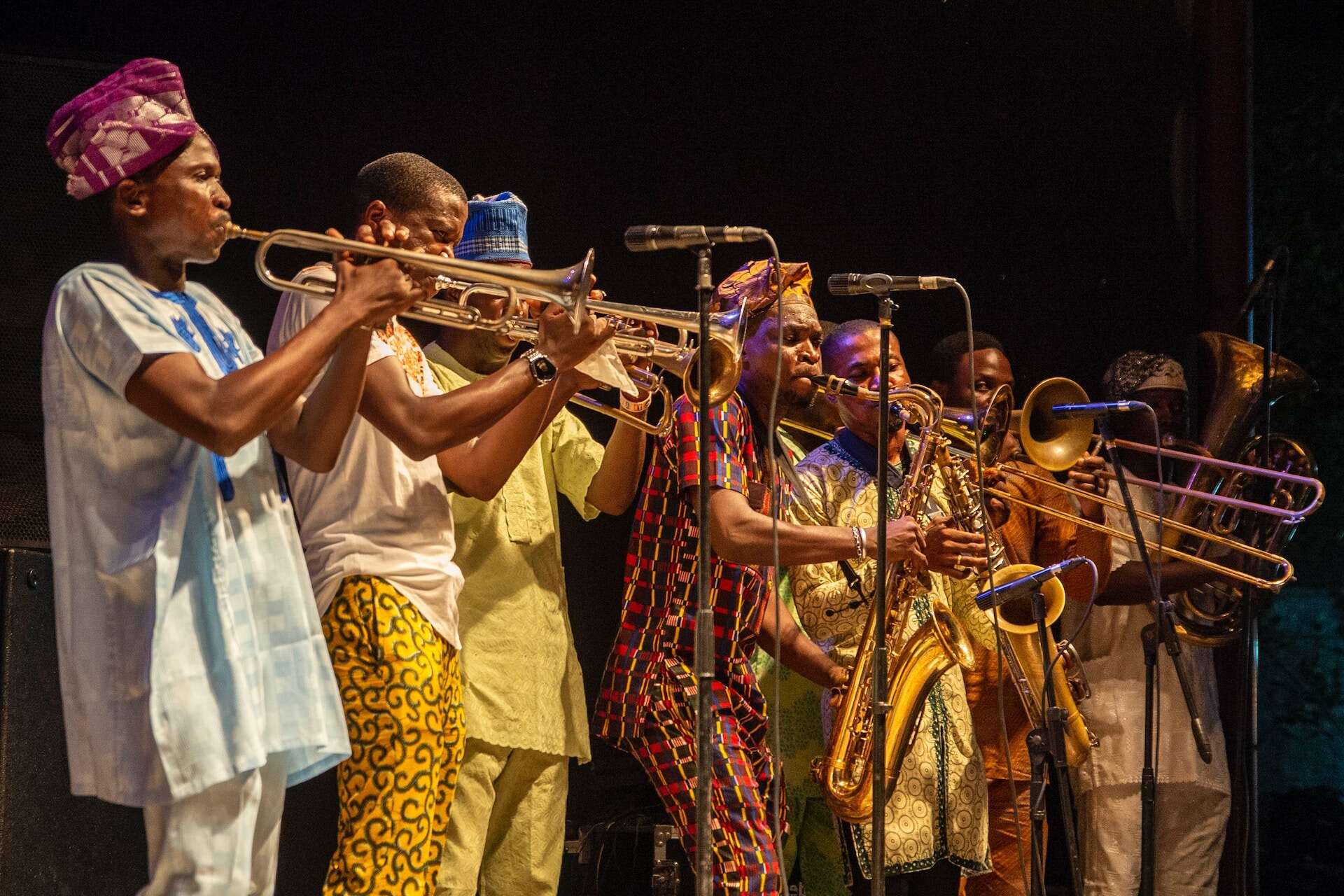Secrets Of Nigerian Traditions Only Locals Truly Grasp

Ever wondered what makes Nigerian traditions so unique? Nigeria, with its rich cultural tapestry, offers a blend of customs that only locals truly understand. From vibrant festivals to age-old rituals, each tradition tells a story. Imagine attending a Yoruba wedding, where the bride's attire dazzles with intricate beadwork, or witnessing an Igbo masquerade dance, where masked performers bring ancient tales to life. These experiences go beyond mere events; they are a deep dive into the heart of Nigerian culture. Understanding these traditions requires more than just a visit; it demands immersion, respect, and a keen interest in the stories behind them.
Rich Cultural Festivals
Nigeria boasts a vibrant tapestry of cultural festivals that locals cherish deeply. These events often blend music, dance, and traditional attire, creating unforgettable experiences.
Eyo Festival: Held in Lagos, this festival features masquerades dressed in white, parading through the streets to honor the Oba of Lagos. It's a sight to behold with its colorful displays and rhythmic drumming.
Durbar Festival: Celebrated in Northern Nigeria, particularly in Kano, this festival showcases horsemen in elaborate regalia, performing impressive equestrian feats. It marks the end of Ramadan and is a symbol of unity and tradition.
Osun-Osogbo Festival: This annual event in Osogbo celebrates the river goddess Osun. Devotees offer sacrifices and prayers, while the festival also includes music, dance, and art exhibitions.
Traditional Cuisine
Nigerian cuisine is a flavorful journey that locals take pride in. Each region offers unique dishes that reflect its history and culture.
Jollof Rice: A staple at many gatherings, this spicy, tomato-based rice dish is often served with fried plantains and grilled meat. It's a must-try for anyone visiting Nigeria.
Pounded Yam and Egusi Soup: This combination is a favorite in many households. Pounded yam is a smooth, stretchy dough made from yams, while Egusi soup is a rich, hearty soup made from melon seeds.
Suya: A popular street food, suya is spicy grilled meat skewers, often served with sliced onions and tomatoes. It's a delicious snack that locals enjoy at any time of the day.
Unique Languages and Dialects
Nigeria is home to over 500 languages, each with its own dialects and nuances. This linguistic diversity is a source of pride for many Nigerians.
Yoruba: Predominantly spoken in the southwestern region, Yoruba is known for its proverbs and rich oral traditions. It's a language that carries deep cultural significance.
Igbo: Spoken in the southeastern part of Nigeria, Igbo is a tonal language with a complex system of prefixes and suffixes. It plays a crucial role in the identity of the Igbo people.
Hausa: Widely spoken in the northern regions, Hausa is not only a language but also a lingua franca for trade and communication across West Africa.
Traditional Attire
Nigerian traditional attire is more than just clothing; it's a statement of identity and heritage. Each ethnic group has its own unique styles and fabrics.
Aso Ebi: This Yoruba term refers to coordinated outfits worn by family and friends during special occasions. It symbolizes unity and solidarity.
Agbada: A flowing wide-sleeved robe worn by men, Agbada is popular among the Yoruba and Hausa people. It's often made from rich fabrics and adorned with intricate embroidery.
Ankara: Known for its vibrant patterns, Ankara fabric is used to make a variety of clothing items. It's a favorite for both everyday wear and special occasions.
Traditional Music and Dance
Music and dance are integral parts of Nigerian culture, often used to tell stories, celebrate, and communicate.
Talking Drum: This hourglass-shaped drum can mimic the tone and prosody of human speech. It's used in various ceremonies and is a key instrument in Yoruba music.
Bata Dance: Originating from the Yoruba people, Bata dance involves intricate footwork and rhythmic movements. It's often performed during religious and cultural festivals.
Highlife Music: A genre that blends traditional African rhythms with Western instruments, Highlife music is popular in the southeastern regions. It often features brass bands and guitars, creating a lively and upbeat sound.
Traditional Beliefs and Practices
Nigeria's traditional beliefs and practices are deeply rooted in its history and continue to influence daily life.
Orisha Worship: Practiced mainly by the Yoruba people, Orisha worship involves the veneration of deities representing natural forces and ancestors. It's a spiritual practice that includes rituals, offerings, and festivals.
Masquerades: In many Nigerian cultures, masquerades are believed to embody spirits and ancestors. They play a significant role in ceremonies, festivals, and rites of passage.
Divination: Various forms of divination, such as Ifa among the Yoruba, are used to seek guidance and insight. These practices involve interpreting signs, symbols, and natural phenomena to make decisions and understand the future.
Embracing Nigerian Traditions
Nigerian traditions are rich and diverse, offering a unique glimpse into the country's vibrant culture. From the colorful festivals to the intricate art and crafts, these traditions are deeply rooted in history. Understanding the significance of family and community in Nigerian life helps appreciate the warmth and hospitality locals extend to visitors. The music and dance are not just forms of entertainment but expressions of identity and heritage. Cuisine plays a crucial role, with each dish telling a story of its own. By immersing yourself in these traditions, you gain a deeper connection to Nigeria's soul. Whether you're attending a wedding, participating in a festival, or simply enjoying a traditional meal, every experience adds to your understanding of this fascinating culture. Embrace these traditions, and you'll find a richer, more meaningful travel experience in Nigeria.

